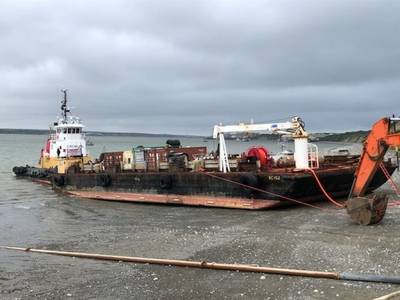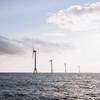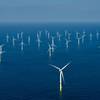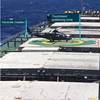Fuel Barge Stuck in the Mud in Alaska
A fuel barge has become stuck in mud on the Naknek River in Naknek, Alaska, the U.S. Coast Guard said on Wednesday.
The Coast Guard said it is responding to the Crowley BC-152 barge, which settled in the mud and began to show signs of structural stress while offloading petroleum product.
"This barge did not run aground, but became stuck in the mud during low tide yesterday as it was offloading product," said Lt. James Nunez, incident management division chief for Coast Guard Sector Anchorage.
Personnel aboard the barge reported to the Coast Guard at approximately noon Tuesday that the barge had settled in the mud, and that the deck of the barge was showing signs of stress, including a cracked check valve.
Coast Guard Sector Anchorage immediately diverted Marine Safety Task Force responders working in the region to assess the situation.
No injuries or signs of pollution have been reported.
Product is currently being offloaded from the barge, and approximately 50,330 gallons of gasoline and 95,410 gallons of diesel remain on board, the Coast Guard said.
The Coast Guard and contracted cleanup professionals are standing by on site in the event that any fuel enters the water.
"Our job is to ensure the potential for pollution in this situation is mitigated. We will continue to stand by on site until the product is offloaded and we are satisfied that there is no longer a threat. Protecting the environment is our top priority," Lt. Nunez said.











